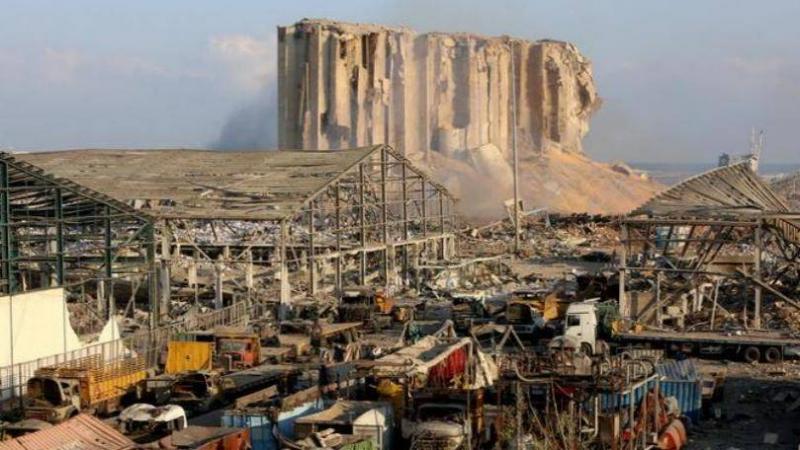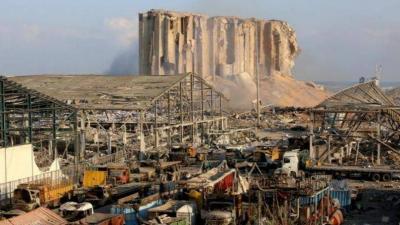On the eve of August 4, Deputy Speaker of Parliament Elias Bou Saab is still working on a settlement to lift the paralysis of the port investigations, which have been stalled since December of last year. On the 19th, President Michel Aoun discussed the general situation in the country and recent developments in Baabda Palace with Bou Saab, focusing on the files Bou Saab is handling, including the reasons for the halt in investigations into the Beirut port crime and several pending decrees. However, as it stands, and despite the silos in the capital that are moving and leaning towards collapse at any moment, deadlock prevails regarding the desired settlement, according to informed political sources speaking to "Al-Markazia." The hands of investigating judge Tarek Bitar in the August 4 crime remain tied, just before the second anniversary of the port explosion.
Given the slim prospects of reaching a resolution, there appears to be no solution except to resort to international justice to uncover the truth about what happened on that fateful day and to hold accountable those involved and negligent, as well as anyone proven to have been involved in bringing and keeping ammonium nitrate among civilians in the heart of the capital. The hopes of the victims’ families in domestic justice have also faded, diminishing day by day without Bitar being "liberated." They no longer expect "Lebanese" justice since the dominant powers of the ruling system have substantial control over the judiciary and are capable of manipulating and intimidating it, according to their sources.
In this context, members of the "Strong Republic" bloc signed a petition yesterday to once again demand the formation of an international fact-finding committee on the August 4 explosion to assist the local investigation, coordinating with the victims' families. MP George Adwan emphasized during a press conference at the Parliament, accompanied by MPs Ghada Ayoub and Nazih Matta, the call for blocs to sign the petition before it is sent to the Human Rights Council. Adwan said to the families of the victims, "We are with you and will fiercely confront the authority in pursuit of justice; the era of impunity is over." He stated that "the judiciary is paralyzed, and the ruling authority is committing today a crime worse than the August 4 explosion itself by obscuring the crime scene and preventing the truth." He reiterated the call for the formation of an international investigative committee from the beginning.
The questions remain: can other blocs join this initiative and sign it? More importantly, will the upcoming cabinet, which will eventually see the light of day—perhaps after the tenure of President Michel Aoun—is willing to raise a request to the relevant international bodies to initiate external investigations into this epochal crime? This request hinges on the nature and "identity" of the government that will be formed, which in turn is related to the background and identity of the president who will be elected. If he is close to the ruling system and specifically to the March 8 team, the chances of uncovering the truth, whether locally or internationally, will remain zero, the sources conclude.




